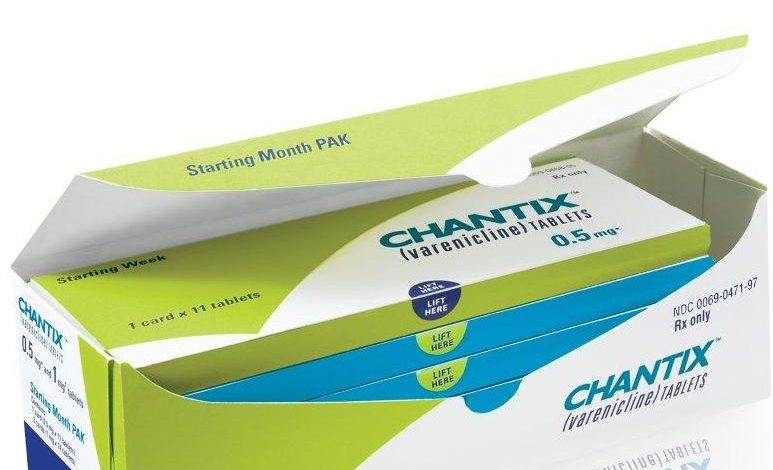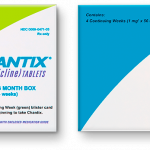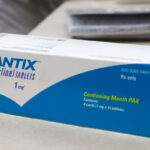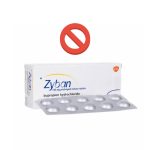How Does Chantix Work To Help People Quit Smoking

Chantix, also known as varenicline, is a medication that is used to Chantix is a prescription medication used to help people quit smoking. It was first approved by the US Food and Drug Administration (FDA) in May 2006 and has since been approved in several other countries.
Chantix was developed by Pfizer, Inc. in collaboration with the National Institute on Drug Abuse (NIDA) and the National Cancer Institute (NCI). Clinical trials of Chantix showed that it was more effective than placebo at helping people quit smoking. In fact, some studies found that Chantix was more effective than other smoking cessation treatments, such as nicotine replacement therapy and bupropion.
However, Chantix has also been associated with several side effects, including changes in mood and behavior. In 2008, the FDA added a black box warning to the Chantix label, warning of the potential for serious neuropsychiatric events, including suicidal ideation and behavior.
Despite these concerns, Chantix remains a popular and effective smoking cessation medication. It is available in pill form and is usually taken for 12 weeks, although some people may take it for longer. It is important for people taking Chantix to be aware of the potential side effects and to seek medical attention if they experience any concerning symptoms.
How Does Chantix Work?
Chantix is a type of medication known as a partial agonist, which means that it partially activates the same receptors in the brain that nicotine activates. This allows it to reduce the feelings of pleasure that come from smoking, making it less rewarding and less appealing.
When a person takes Chantix, it binds to the same receptors that nicotine binds to, but it does not activate them as strongly as nicotine does. This means that the person will still get some of the effects of nicotine, but they will be reduced.
At the same time, Chantix also blocks the receptors in the brain that nicotine binds to. This makes it harder for nicotine to activate those receptors and produce feelings of pleasure.
As a result of these actions, Chantix can help to reduce the cravings and withdrawal symptoms that people experience when they quit smoking. This can make it easier for people to stick to their quit plan and avoid relapse.
How effective is Chantix?
Clinical trials have shown that Chantix is more effective than placebo and other smoking cessation treatments. One study found that 44% of people taking Chantix were able to quit smoking for at least 4 weeks, compared to 18% of people taking a placebo.
How long does it take for Chantix to start working?
Chantix typically starts working within a week of starting treatment. However, it may take longer for some people to experience the full effects of the medication.
How is Chantix Prescribed?
Chantix is a prescription medication, which means that it can only be obtained with a prescription from a doctor. Before prescribing Chantix, a doctor will typically ask the patient about their smoking history and any previous attempts to quit.
The doctor will also review the patient’s medical history and any medications they are taking to make sure that Chantix is safe for them to use. This is because Chantix can interact with certain medications, such as blood thinners and antidepressants.
Once a doctor has determined that Chantix is safe for the patient to use, they will typically prescribe a starter pack of the medication. The starter pack contains a lower dose of Chantix that is gradually increased over the first week of treatment.
After the first week, the patient will typically continue taking Chantix at the higher dose for another 11 weeks. In some cases, a doctor may recommend that the patient continue taking Chantix for an additional 12 weeks to help prevent relapse.
How long do I need to take Chantix?
Chantix is usually taken for 12 weeks, although some people may take it for longer if needed. If a person successfully quits smoking during the initial 12 weeks of treatment, they may be advised to continue taking Chantix for an additional 12 weeks to help prevent relapse.
Can I use Chantix if I am pregnant or breastfeeding?
It is not recommended to use Chantix if you are pregnant or breastfeeding, as the effects on the fetus or infant are not well understood. Talk to your healthcare provider about other options.
Can Chantix be used with other smoking cessation treatments?
Chantix should not be used with nicotine replacement therapy or bupropion, as these treatments can increase the risk of side effects. However, Chantix may be used with behavioral counseling or support groups.
Side Effects to Chantix?
Like all medications, Chantix can cause side effects. Some of the most common side effects of Chantix include nausea, constipation, and difficulty sleeping.
In rare cases, Chantix has been associated with more serious side effects, such as depression, suicidal thoughts, and behavior changes. For this reason, it is important for anyone taking Chantix to report any unusual symptoms or changes in mood to their doctor right away.
It is also important for people taking Chantix to avoid smoking while taking the medication, as it can increase the risk of side effects. Additionally, people should not drive or operate heavy machinery while taking Chantix, as it can cause drowsiness and affect reaction time.
Conclusion
Chantix is a medication that can help people quit smoking by reducing cravings and withdrawal symptoms. It works by binding to the same receptors in the brain that nicotine binds to, and partially activating them while also blocking them from full activation by nicotine.
While Chantix can be an effective tool for smoking cessation, it is important for people to talk to their doctor about whether it is right for them. Chantix can interact with certain medications and can cause side effects, including rare but serious ones like depression and suicidal thoughts.
People taking Chantix should follow their doctor’s instructions carefully and report any unusual symptoms or changes in mood. With the right guidance and support, Chantix can be an effective tool to help people quit smoking and improve their overall health.
Frequently Asked Questions And Answers About Chantix
Should I stop taking Chantix if I experience side effects?
Talk to your healthcare provider if you experience any side effects while taking Chantix. They can help determine if the benefits of the medication outweigh the risks. It is important to not stop taking Chantix without first talking to a healthcare provider.
Can Chantix be used by people with medical conditions?
Chantix should be used with caution in people with certain medical conditions, such as kidney problems and a history of psychiatric disorders. People with these conditions should talk to their healthcare provider before starting Chantix.
Can Chantix be used by people with a history of drug or alcohol abuse?
Chantix should be used with caution in people with a history of drug or alcohol abuse. People with these histories should talk to their healthcare provider before starting Chantix.
Can Chantix cause weight gain?
Chantix has not been shown to cause weight gain. In fact, some studies have shown that Chantix may actually lead to weight loss in some people.
Can Chantix cause dizziness or drowsiness?
Chantix may cause dizziness or drowsiness in some people, particularly when first starting the medication or when increasing the dosage. It is important to avoid driving or operating heavy machinery until you know how Chantix affects you.
Can Chantix be taken with food?
Chantix can be taken with or without food. However, some people may experience less nausea if they take the medication with food.
Can I drink alcohol while taking Chantix?
It is recommended to avoid alcohol while taking Chantix, as alcohol can increase the risk of side effects such as dizziness and drowsiness.
Can Chantix be used to quit smokeless tobacco?
Chantix has not been approved by the FDA for use in quitting smokeless tobacco. It is currently only approved for smoking cessation.
Can Chantix be used for long-term smoking cessation?
There is limited data on the long-term use of Chantix for smoking cessation. Some people may continue to take Chantix beyond the initial 12-week treatment period to help prevent relapse.
Is Chantix covered by insurance?
Chantix is often covered by insurance, but coverage may vary depending on the individual’s insurance plan. It is important to check with your insurance provider to determine coverage and any out-of-pocket costs.





